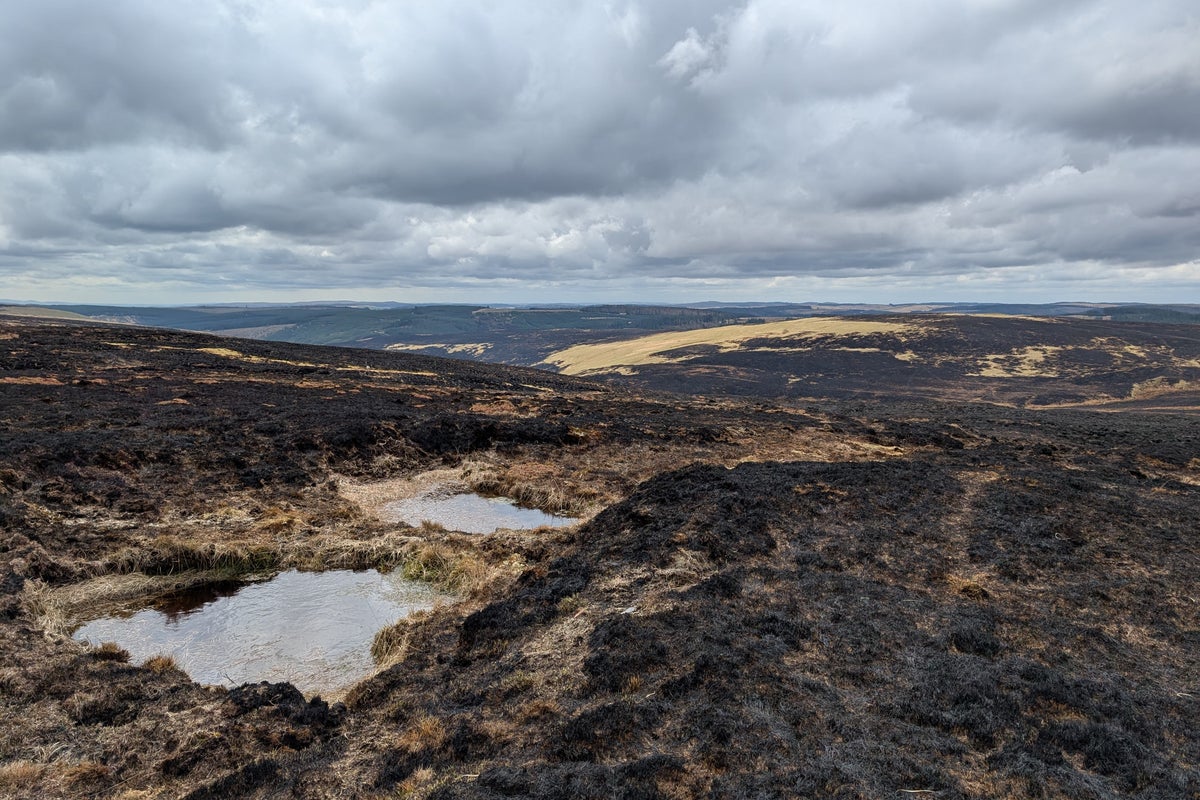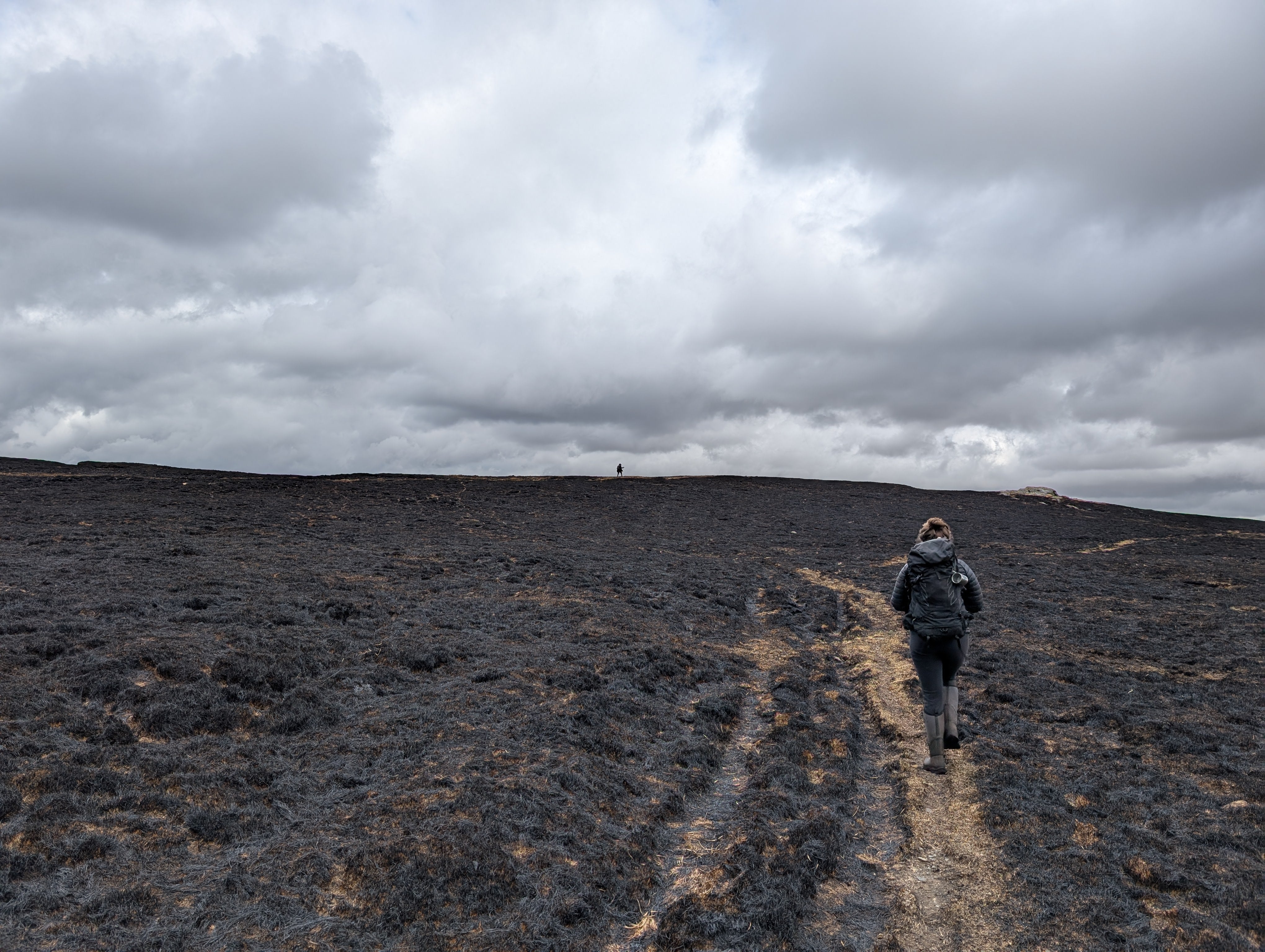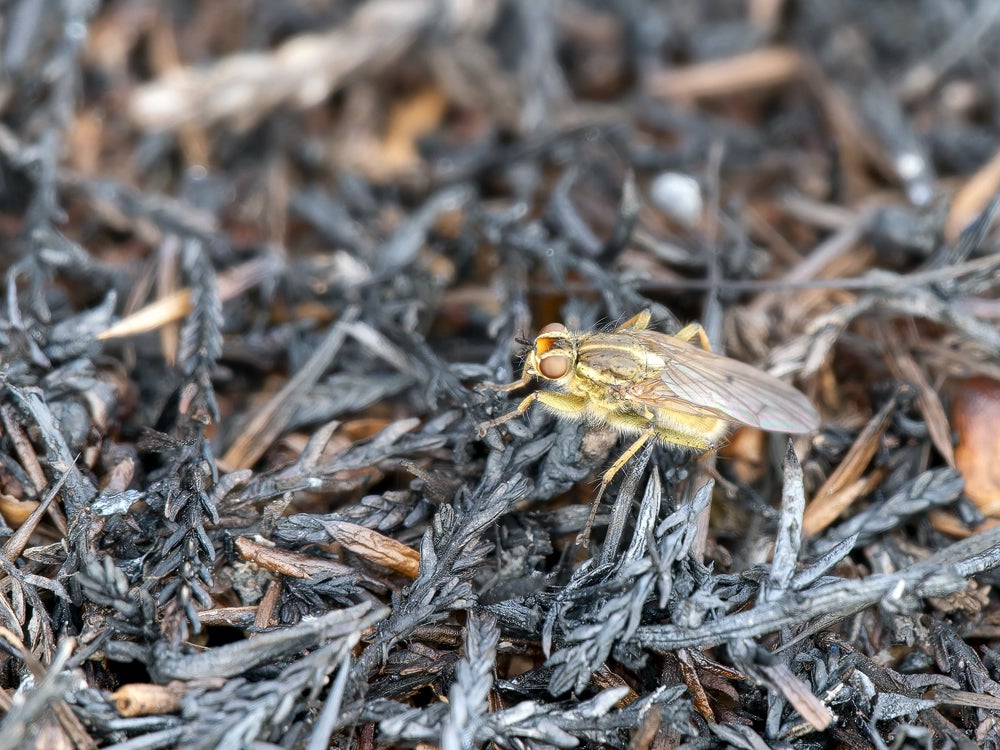
Whole ecosystems have been “decimated” and endangered species put at risk after weeks of wildfires across the UK, charities have warned.
One of the driest Marches in decades, combined with warmer than average temperatures in April, has led to the UK being hit by one of the worst fire seasons on record.
Vast areas of habitat for small mammals and birds, including butterflies, beetles and falcons have been damaged, while some peat bogs may take “hundreds of years” to recover.

Abergwesyn Common in Powys, Wales, was consumed by a 1,600 hectare fire – an area roughly 400 times the size of Cardiff’s Principality Stadium.
And National Trust rangers fear that the breeding habitat of the area’s last known population of golden plovers, a rare, protected bird found in upland moorlands, will have been lost.
Chris Smith, the National Trust’s countryside manager for Mid and South Wales, said: “The sheer scale of the fire on Abergwesyn Common is hard to fathom.
“As a Site of Special Scientific Interest, the impacts on wildlife are widespread, with birds’ nests, insects, amphibians and reptiles all scorched by fire. Whole ecosystems have been decimated and will remain altered well into the future.
“Alongside this, the huge loss of surface vegetation leaves the peat bogs we have been working hard to restore and rewet vulnerable to erosion and at further risk of fire and carbon loss.
“Where the flames burnt down to the peat soils, they will take hundreds of years to recover.”
The number of wildfires in Wales has dramatically increased this year.
South Wales Fire and Rescue service responded to 34 wildfire callouts between January 1 and April 10 2024, but 445 over the same period in 2025 – a 1,200% increase.
In total, Wales’ three fire services have reported responding to more than 1,300 grass fires this year.
On the Mourne Mountains in Northern Ireland, recent fires have scorched land used by an array of wildlife, including small heath butterflies, rove beetles, skylarks and peregrine falcons.
Smaller birds such as skylarks rely on insects and beetles for food, with these birds in turn providing a food source for larger birds of prey.
The National Trust said that monitoring after a major fire in the area in 2021 showed a significant impact on the diversity and abundance of wildlife species.
In other areas, the blazes have ruined years’ worth of conservation efforts.

At Howden Moor, in the Peak District, the Trust said a recent fire that stretched for two kilometres had caused £30,000 worth of damage.
Ben McCarthy, head of nature conservation at the Trust, said the country needs “urgent Government action” to help mitigate and adapt to wildfires and other climate risks.
The Trust said it is adapting its landscapes by making big areas of land wetter and boggier, including by planting special mosses that hold water and by creating wetlands that, once established, act like natural fire breaks.
WWF Cymru said the “devastating” wildfires are a “stark reminder that the climate and nature crisis is upon us”.
Gareth Clubb, director at WWF Cymru, said: “With one in six assessed species at risk of extinction in Wales already, these wildfires are having a devastating effect on wildlife and nature.
“We know what must be done to save UK nature. From nature-friendly farming to restoring seagrass, the solutions exist across every sector to make our diverse habitats more resilient to extreme weather made more frequent and severe due to worsening climate change.
“Now is the time to act to halt and reverse the loss of nature by 2030.”
Conservation charity The Wildlife Trusts has also stressed the importance of finding solutions to climate change and nature loss to “safeguard our futures”.
Kathryn Brown, director of climate change and evidence at The Wildlife Trusts, said: “In recent weeks, fires across precious natural spaces, including at Wildlife Trust nature reserves, have caused untold damage to important habitats and the places wildlife calls home.
“Damage from wildfires can take decades to recover from and sometimes that damage is irreversible.
“The Wildlife Trusts, along with others, are hard at work to restore nature, and for species like rare golden plovers and sand lizards, these recent fires could present a real setback in terms of their recovery.”







